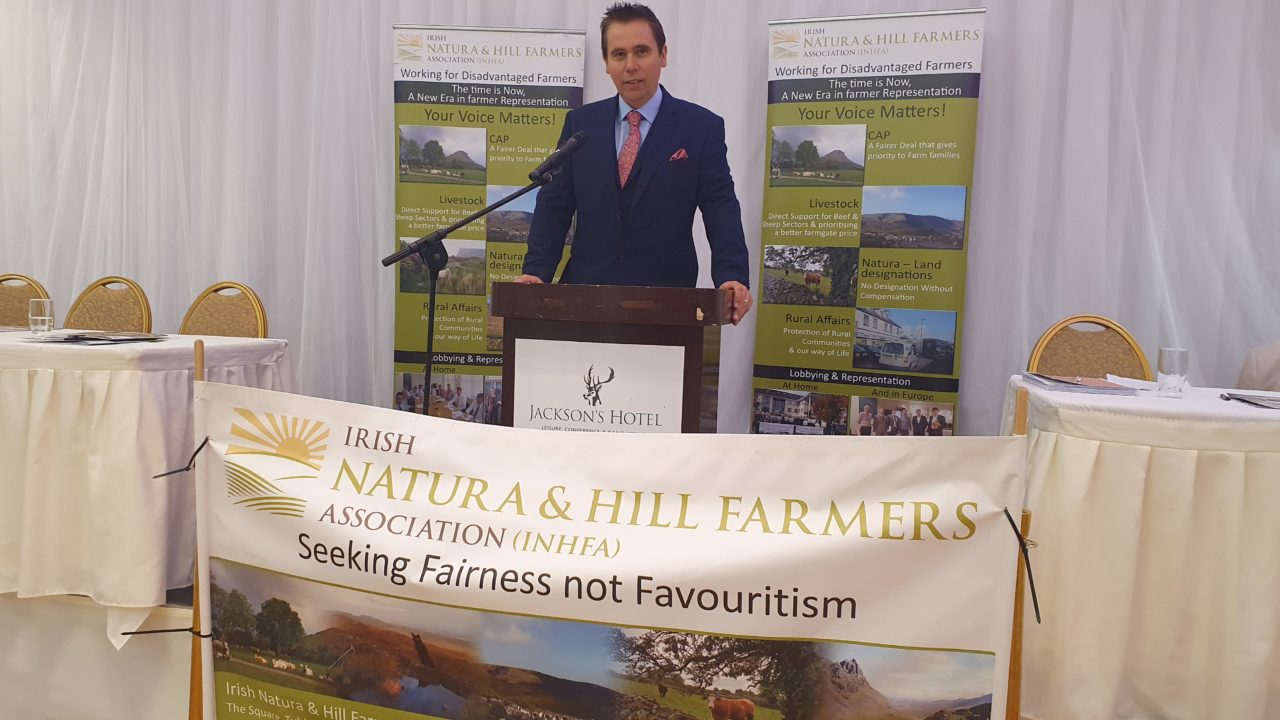The Irish Natura and Hill Farmers’ Association (INHFA) has expressed a mixed reaction after the announcement today of the funding allocation for the new 2023-2027 Common Agricultural Policy (CAP).
The association said it was relatively happy with much of Pillar I, but less so with Pillar II.
INHFA national president Vincent Roddy welcomed the decision to front-load 10% of the Pillar I budget on the first 30ha through the Complementary Redistributive Income Support for Sustainability (CRISS).
“While it didn’t follow the exact route we sought, this announcement has introduced the concept of front-loading and provides a basis to move forward on.”
Roddy also welcomed the clarity on what the future of convergence will be under the new CAP, saying: “The INHFA had called for 100% convergence and although that wasn’t fully achieved, the move from 60% to 85% is crucial for our members.”
The INHFA president gave a positive appraisal of the decision to set the ringfencing of Pillar I money for eco-schemes at 25% (as opposed to implementing a ‘learning period’ with a lower initial ringfencing percentage); as well as the decision to pay this out on a flat-rate basis.
“An equal payment for the measures is essential as all farmers will be required to choose from the same list of actions. It is crucial that every hectare applied on by farmers be eligible for the eco-scheme, with adequate available measures for all farmers and farm types,” he argued.
“Under Greening in the current CAP we saw farmers paid varying rates to deliver the same measure which undermined the credibility of the whole concept and our ability to deliver substantial increases in the current CAP programme.”
Where Pillar II is concerned, Roddy said he was disappointed with the budget allocation for some schemes.
While acknowledging that there will be an overall increase in Pillar II funding, he stated: “This needs to be viewed in the context of increased demands on farmers as a result of climate change requirements.
“The increased demands will undermine farmer income and increase costs; farmers will need additional supports in order to stay in business. On this basis it is disappointing to see the proposed Suckler Carbon Efficiency Programme will only cater for 400,000 suckler cows and the agri-environmental scheme will only cater for 50,000 farmers,” Roddy added.
“We would also caution against any ‘collective action’ being part of any new proposed agri-environmental scheme. A farmer’s ability to farm as an individual must be enshrined.”
“In the coming days we will examine the detail outlined in all the schemes and work with the minister and departmental staff to improve the make-up of the schemes and the budgetary allowances,” Roddy concluded.
